Last Updated: 22/10/2025
Spoodle (Cockapoo) Breed Guide
Learn all about the Spoodle (Cockapoo) in our complete vet guide. Discover their intelligent and affectionate personality, and why they make great family pets. We cover essential care facts on diet, exercise, grooming, and toys, plus health issues to watch for.
Author: Dr Katelyn Bailey BVSc (Hons)
Reading Time: 7 minutes - short read
With their distinctive teddy bear like appearance, sweet nature and big brown eyes, who could resist the charms of the Spoodle? Like many 'oodles', Spoodles (also known as Cockapoos) are exploding in popularity in Australia as well as overseas. A cross between the Cocker Spaniel and the Poodle, they make great family pets and are very intelligent, with an affectionate and spirited disposition.
Although not an officially recognised dog breed, Spoodles display consistent traits and health predispositions, making them worthy of their own profile.
All about Spoodles
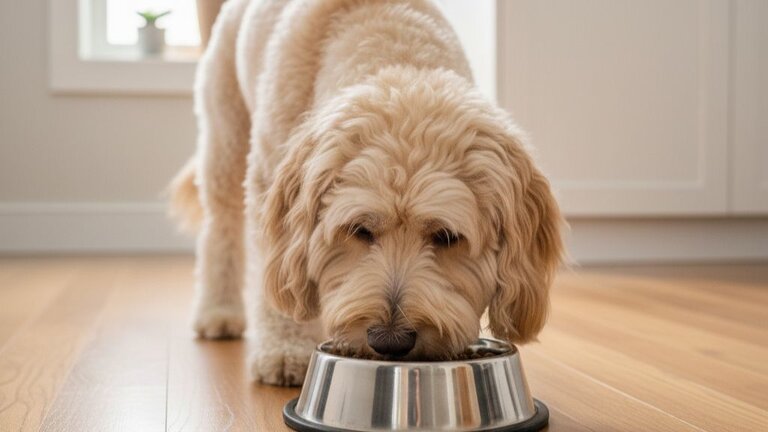
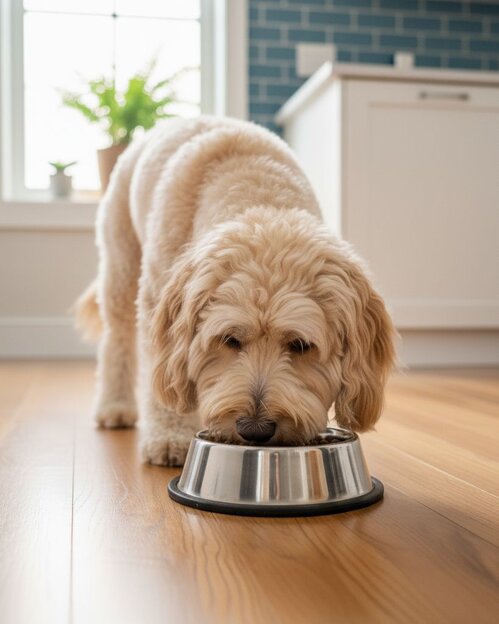
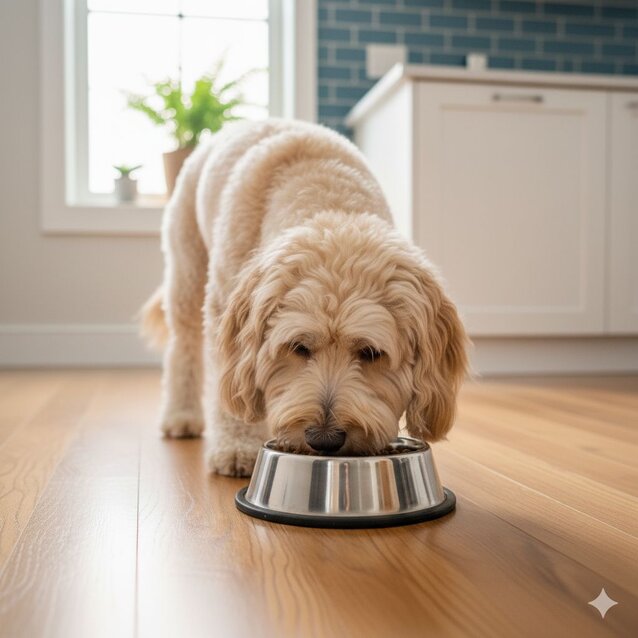
Nutrition
Feeding a high quality diet that is tailored to your Spoodle's age and size will help to keep them healthy and happy. Getting nutrition right can help to prevent, reduce or manage some commonly occurring health conditions in Spoodles, such as allergies and joint disorders.
Best food for adult Spoodles
Although there are no specific feeding requirements for an adult Spoodle, their diet needs to be age-appropriate and meet all of their daily nutritional and energy demands. Most small or medium (depending on your dog's specific size) breed adult foods from premium brands including Hills Science Diet, Royal Canin, or Advance are suitable. These scientifically-formulated diets contain balanced levels of protein, fat and carbohydrate plus vitamins, minerals and antioxidants for health and wellbeing.
What to look for
Modified energy content to help maintain a healthy weight
Small or medium breed kibble tailored to your dog's specific size
Ingredients and/or kibble size and texture to support dental health
Vet picks
Best food for Spoodle puppies
Spoodle puppies need to eat a premium diet that is nutritionally formulated to meet AAFCO Guidelines until they are 12 months of age. You may consider a Rotation Diet to provide exposure to different proteins and reduce the risk of food sensitivities.
Raw diets are not suitable or safe for Spoodle puppies due to the risk of bacterial contamination, which can lead to food poisoning and upset their sensitive tummies. Plus, an unbalanced diet can lead to nutritional deficiencies.
What to look for
Complete and balanced puppy diet for optimal growth and bone development
Highly digestible formula to help prevent tummy upsets
DHA for healthy brain and eye development

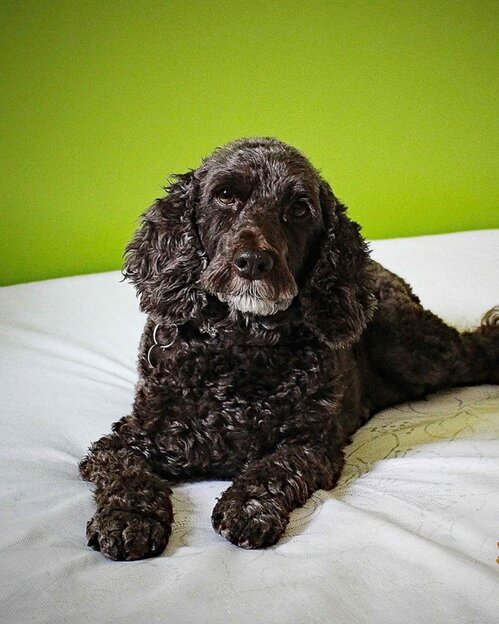

Flea & worming
Keeping your Spoodle protected year round against common parasites is essential to maintaining their health. This should include coverage against fleas, ticks, heartworm and intestinal worms.
Best flea and worming treatments for Spoodles
For Spoodles, oral chews are the most reliable parasite prevention method as their effectiveness isn't compromised by dense, curly fur, frequent bathing, or swimming, unlike topical spot-on treatments. The easiest routine is a monthly all-in-one chew, which protects against fleas, ticks, heartworm, and most intestinal worms. However, it is crucial to remember that these products do not cover all tapeworms, so you must also give your Spoodle a separate tapeworm, or all-wormer, treatment every 3 months, or every 6 weeks if they consume raw meat or offal.
Altermatively, the annual heartworm injection from your vet can provide peace-of-mind. This can be combined with a regular flea, tick and intestinal worming treatment to provide comprehensive protection.
What to look for
Oral chews and tablets to avoid reduced effectiveness from bathing and swimming
All in one products for simplicity
Always double check the weight range to ensure an effective dose
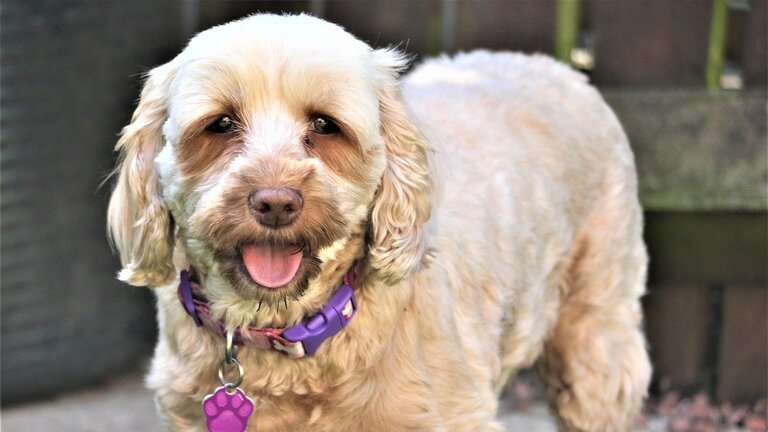
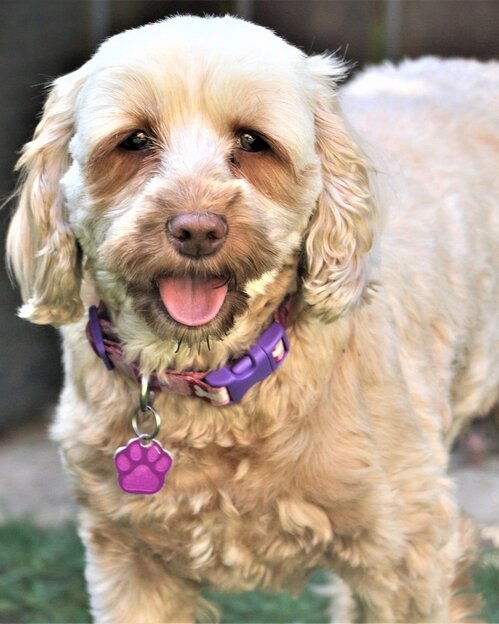
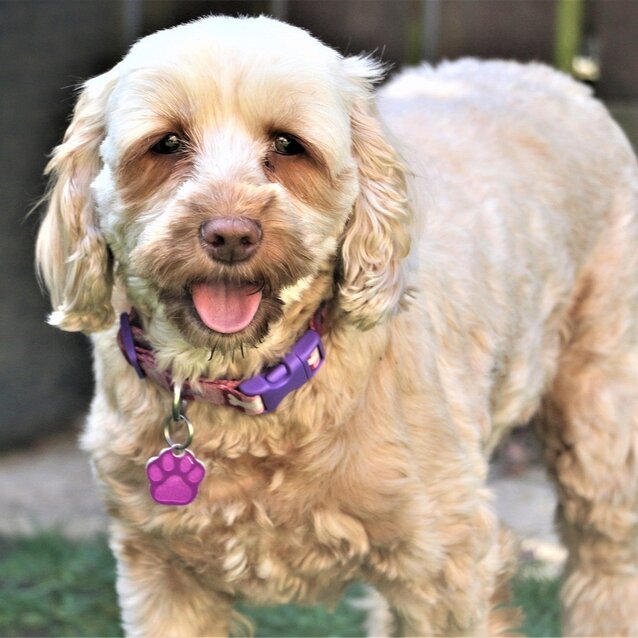
Health
Spoodles can inherit health issues from both Cocker Spaniel and Poodle lines, most commonly chronic ear infections and allergic skin disease. They are also prone to hereditary joint problems, like patellar luxation, and eye conditions, including Progressive Retinal Atrophy (PRA).
Best products for ear and skin health in Spoodles
To manage a Spoodle's high risk of ear infections, a preventative routine with a gentle, drying ear cleaner is essential, especially after bathing or swimming. For their allergy-prone skin, gentle, oatmeal-based shampoos are excellent for routine bathing, while medicated shampoos are used to treat the secondary yeast and bacterial infections common during allergic flare-ups. Supporting the skin barrier from within with a high-quality Omega 3 & 6 fatty acid supplement is also highly effective in managing skin sensitivity and reducing inflammation.
For more information, read through our guide to How to Clean Your Dog's Ears.
What to look for
Gentle, pH balanced ear cleaners
Ear wipes for quick clean ups
Omega supplements to support ear and skin health
Best products for managing luxating patellas in Spoodles
Patellar luxation is a common hereditary condition in Spoodles where the kneecap (patella) dislocates or "slips" out of its natural groove, often causing a characteristic "skipping" or hopping gait. It's important to understand that products cannot "treat" or cure the underlying anatomical issue; severe cases require surgical correction.
For mild cases, management is focused on relieving discomfort and slowing the onset of arthritis. The best products for this are high-quality joint supplements containing ingredients like glucosamine, chondroitin, and green-lipped mussel (GLM) to support cartilage health and reduce inflammation. However, the most effective management strategy is strict weight control - keeping your Spoodle at a lean body weight is the single most important thing you can do to reduce stress on their knee joints.
What to look for
Joint support supplements based on marine sources of omega fatty acids such as green lipped mussel powder or fish oil
Veterinary diets that provide dual support for mobility and other commonly linked issues such as weight management
Mobility support aids such as ramps and stairs to limit joint strain



Training and activity
As intelligent and energetic dogs, Spoodles require daily physical exercise and mental stimulation to prevent boredom. They are highly trainable and respond exceptionally well to positive reinforcement methods, which are perfect for channelling their natural enthusiasm and shaping good behaviour.
Best toys for Spoodles
Interactive toys are a great tool to keep your Spoodle busy and mentally worn out, especially while you're out of the house. Fetch toys are also a favourite and allow for valuable bonding time as well as much-needed physical activity.
What to look for
Fetch toys to satisfy their hunting and retrieving instincts
Food dispensing toys and puzzles for mental enrichment
Snuffle mats for scent work
Best harnesses, collars and walking accessories for Spoodles
Daily exercise is an essential part of caring for a Spoodle. The key is to prioritise their comfort, safety, and specific physical traits like their long coat, delicate ears, and energetic nature. Keep plenty of high value training treats on you when out and about to help reinforce good behaviour.
What to look for
Adjustable harness
Flat collar to hold ID tags
Bite sized, high value treats and a treat pouch for training on the go
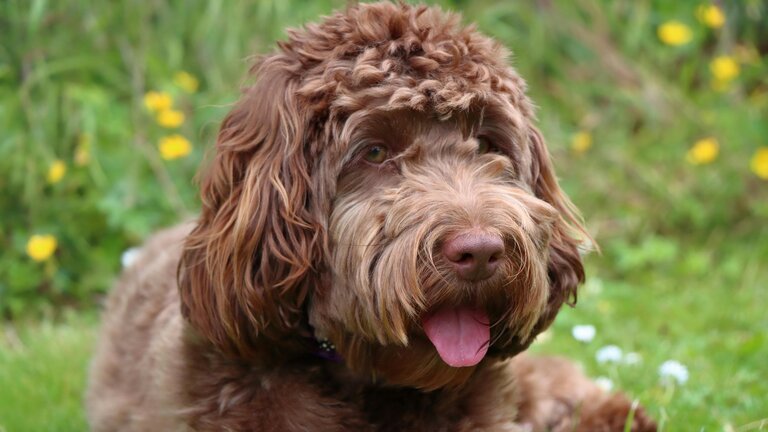
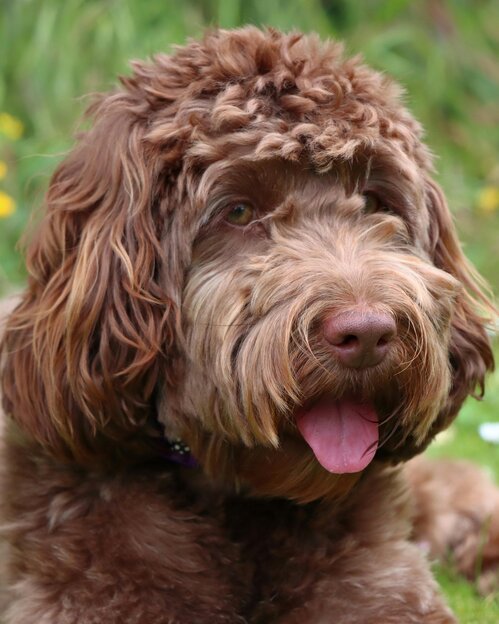
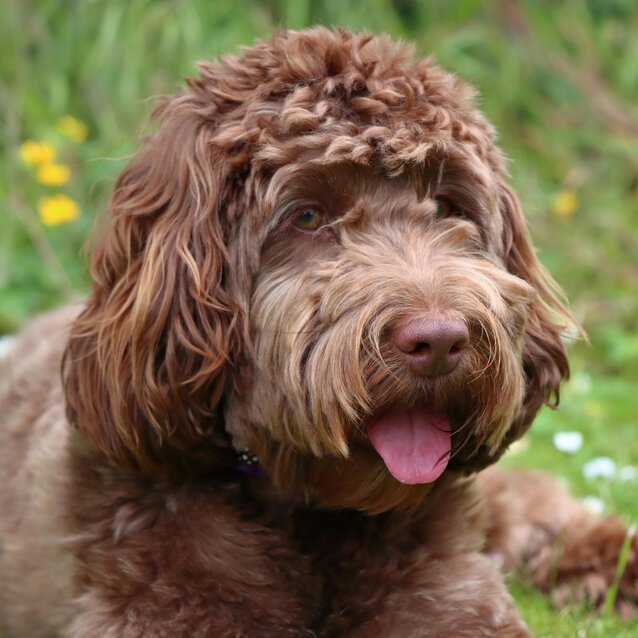
Grooming
Grooming is a critical part of a Spoodle's health, as their popular low-shedding fleece or wool coats are high-maintenance and prone to matting.
Best grooming products for Spoodles
Tangle and matts can form quickly in the Cockapoo coat, pulling on the skin and potentially hiding skin infections, grass seeds, or parasites. To prevent this, daily brushing at home using a slicker brush followed by a metal comb to check for knots right down to the skin is essential.
This home care may be supplemented with a visit to a professional groomer every 6 to 8 weeks for a clip.
Spoodles are unfortunately quite prone to developing dental disease, often due to their Poodle heritage which can mean teeth become crowded, leading to rapid plaque and tartar build-up. The gold-standard for home dental care is daily toothbrushing, and this can be supported with dental chews, dental supplements, or a specific dental-care diet. Regular veterinary dental check-ups are also essential to identify any issues early and determine when a professional clean under anaesthetic is required.
Learn more about How to Groom Your Dog, Dental Care for Dogs, and How to Brush Your Dog's Teeth.
What to look for
Gentle ear cleaners to for use after bathing and swimming
Slicker brushes, and metal combs for regular brushing
Toothbrushes, dog-friendly toothpastes and dental supplements for oral health



Sleep and home
Spoodles are an active breed but also require significant rest, with adults typically sleeping 12-14 hours a day (including naps), and puppies needing 16-18 hours or more. As they are highly social and can be prone to separation anxiety, providing a safe, dedicated sleeping space is vital.
Best beds for Spoodles
Spoodles often enjoy curling up, so a round or bolstered "donut" style bed is an excellent choice to help them feel secure. Given the Poodle predisposition to joint issues like hip dysplasia, investing in a supportive orthopaedic mattress is highly recommended for long-term health. Most importantly, because their wonderful fleece coats can easily trap dirt and grass seeds, selecting a bed with a removable, machine-washable cover is essential for good hygiene.
Additionally, plugging in an Adaptil Diffuser near the bed, or giving calming supplements like Zylkene can enhance your Spoodle's feelings of comfort and security, particularly for those who suffer from anxiety.
Learn more about How to Calm an Anxious Pet.
What to look for
Bolster, calming-style beds
Extra support for joints from orthopaedic or memory foam
Durable, machine washable covers

